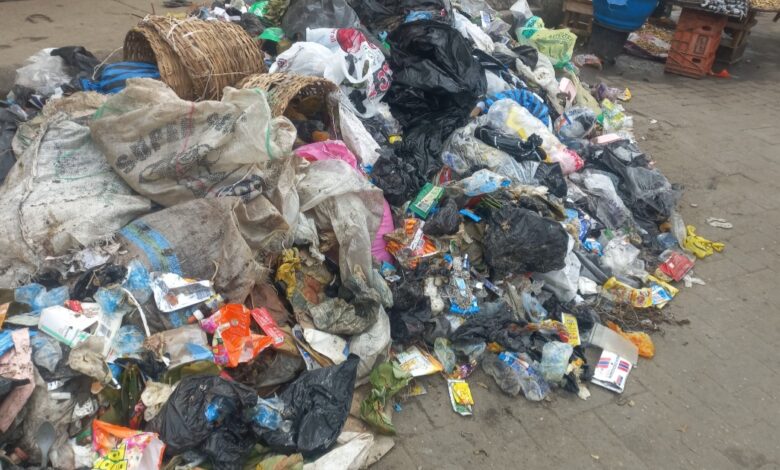Monthly Sanitation Returns To Lagos Amidst Cholera Outbreak, Improper Waste Disposal
In the face of a worsening cholera outbreak, Lagos, the epicentre of Nigeria's crisis, is finding solutions. The Governor has greenlit the return of the monthly environmental sanitation exercise.

In the face of a worsening cholera outbreak, Lagos, the epicentre of Nigeria’s crisis, is finding solutions. Just days after a HumAngle report exposed widespread open defecation and inadequate waste disposal in the Southwestern Nigeria state as major contributors, Governor Babajide Sanwo-Olu has greenlit the return of the monthly environmental sanitation exercise.
The move aims to stem the tide of a deadly disease that has already claimed numerous lives.
Tokunbo Wahab, the state commissioner for environment and water resources, announced the decision on Monday. “Our governor and the state executive council have approved the reintroduction of the monthly sanitation exercise in Lagos state, beginning from this month,” Wahab said during an interview on Radio Lagos.
The sanitation exercise, which was usually held between 7 a.m. and 10 a.m. on the last Saturday of every month, was cancelled in November 2016 under the administration of former Governor Akinwunmi Ambode.
Then, the government claimed that “it was no longer appropriate to restrict movement for three hours in a mega city like Lagos”.
In the HumAngle report published on July 5, we highlighted the effects of gutters filled with faeces, which can transmit infectious diseases such as cholera. The report detailed how residents in houses without toilet facilities excrete in the middle of highways.
This improper waste disposal, which clogs drainage channels, also results in heavy flooding, contributing to the displacement of people and destruction of properties in the densely populated city.
Cholera mostly spreads through direct transmission by eating or drinking contaminated food or water and indirect transmission due to poor sanitation and lack of handwashing. According to a health advisory from the Nigeria Centre for Disease Control and Prevention (NCDC), improper refuse disposal and open defecation practices endanger water safety and lead to cholera outbreaks.
As of July 2, Nigeria had recorded a total of 2,102 suspected cholera cases and 63 deaths across 33 states and 122 local government areas since January. Lagos, Cross River, Bayelsa, Zamfara, Abia, Bauchi, Delta, Katsina, Imo, and Nasarawa are the most affected states.
Summary not available.
Support Our Journalism
There are millions of ordinary people affected by conflict in Africa whose stories are missing in the mainstream media. HumAngle is determined to tell those challenging and under-reported stories, hoping that the people impacted by these conflicts will find the safety and security they deserve.
To ensure that we continue to provide public service coverage, we have a small favour to ask you. We want you to be part of our journalistic endeavour by contributing a token to us.
Your donation will further promote a robust, free, and independent media.
Donate HereStay Closer To The Stories That Matter




